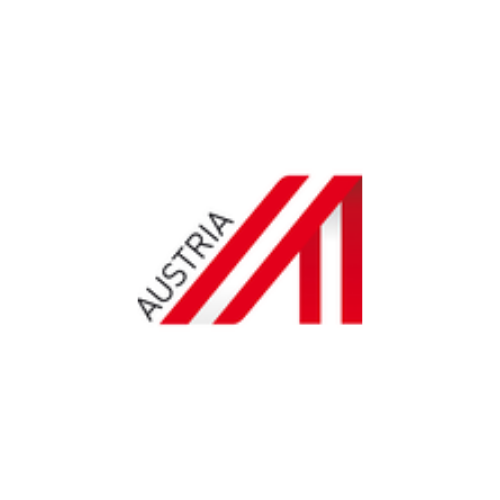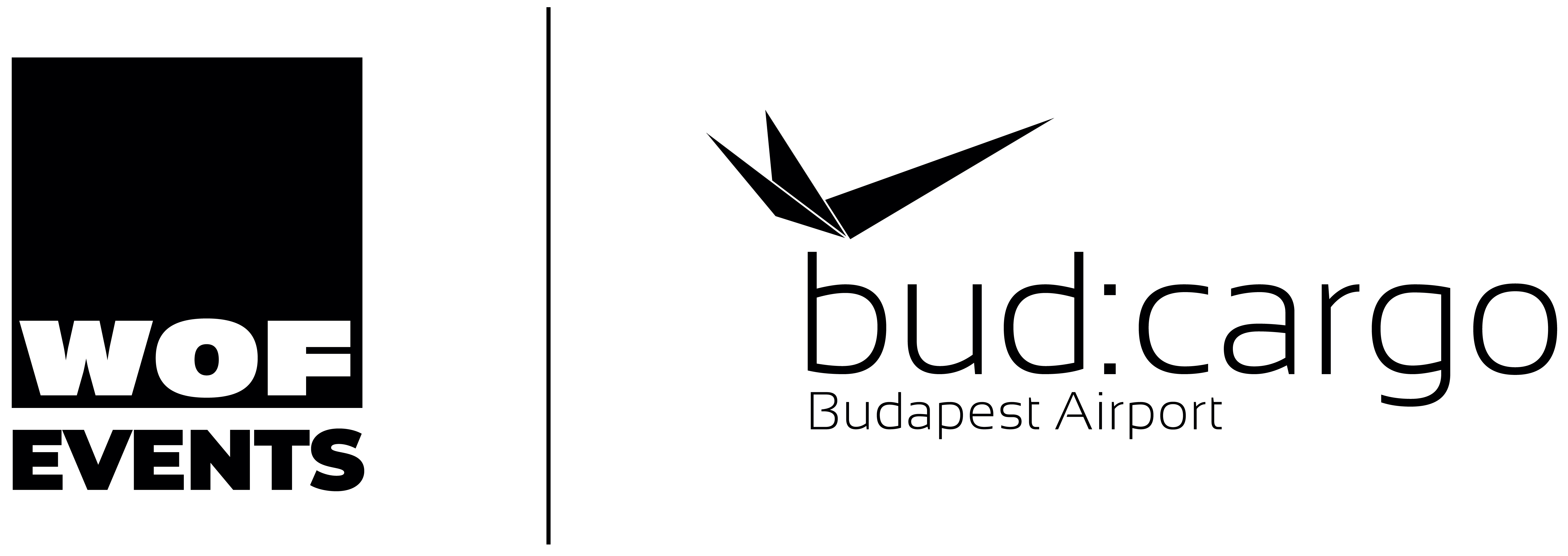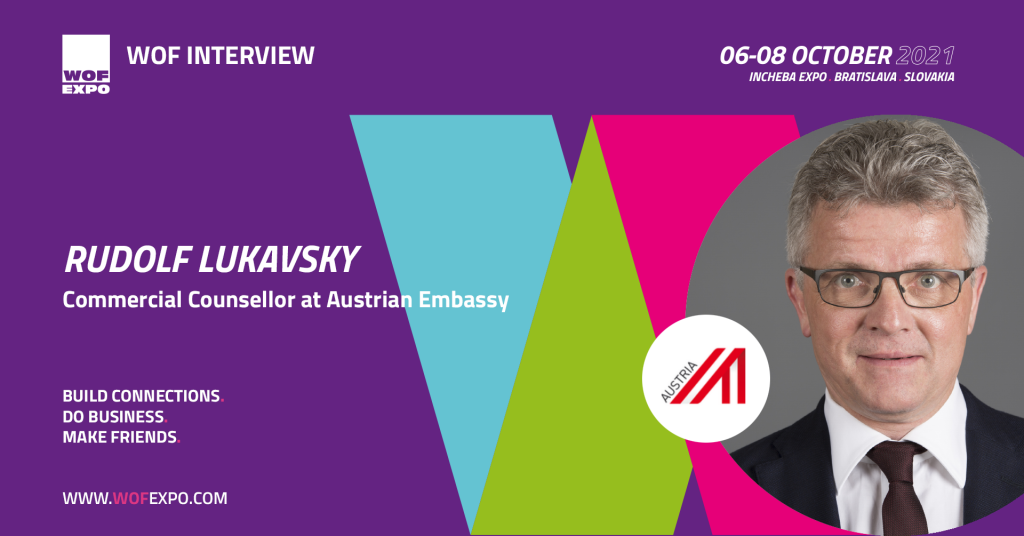INTERVIEW WITH Rudolf Lukavsky
| Mr. Rudolf Lukavsky has been the Austrian Commercial Counsellor in Russia for the past five years. He started his career at AUSSENWIRTSCHAFT AUSTRIA in 1989. Various job positions have taken him around the world: Moscow, Singapore, and Johannesburg, where he worked as a deputy, via Tunis to Cairo, Bucharest, Azerbaijan, and many other beautiful countries. The areas of main responsibility include exports, market support, and project business such as investment advice, the establishment of branches, and location analysis. Mr. Lukavsky also holds a master’s degree in Science from the Vienna University of Economics and Business. |
| 1. Countries from the CEE region definitely understand the importance of the trade cooperation and strategic support of Russia. What are the main import and export items between the CEE region and Russia at the moment? Russia and the CEE region have a long and very dynamic history of the exchange of goods and services. Traditionally Russia has exported mainly oil and gas, metals, coal, wood, and other raw materials. On the other side, there was a high import rate of machinery and equipment, and also consumer goods, pharmaceuticals, food and beverages, and agricultural products. However, we have seen a change in the import structure in Russia during the past ten years. Russia aims to reduce import dependence and to concentrate on value-added industries. Most of the products manufactured in Russia, from machinery, food, meat, and dairy products, fruits, and vegetables to pharmaceuticals are produced mainly for the domestic market and countries of the Eurasian Economic Union so far. The export structure in Russia is changing slowly, but the trend seems to be irreversible. 2. Stability and reliability of Russian–Austrian relations are established by regular contacts at the top and high level, the intensity of cross-sectoral consultations, building up of inter-parliamentary relations and strengthening of a fruitful collaboration between regions and cities of the two countries. In your opinion, what is a significant element of the formation of contemporary relations between Russia and Austria? Economic relations between Austria and Russia are good and stable, however well below their potential. After a peak of bilateral trade of 7,3 bn. euro in 2012, we see a stagnation since 2014, partly because of sanctions and import bans, partly because of a weaker Russian economy, and a devaluation of the Russian Ruble. Traditionally the Austrian export structure to Russia is well-diversified, consisting of machinery and equipment, pharmaceuticals, food & beverages. Russian exports to Austria are traditionally dominated by mineral fuels, metals, and timber products. Austrian companies have invested 7,1 bn. euro in Russia in the fields of woodworking and paper industry, automotive, construction material, packaging, energy, trading, and banking. Russian companies have invested 24,6 bn. euro in Austria, ranking second after Germany, with a focus on oil & gas, banking, and real estate. Austrian companies are seen as attractive partners to help to modernize and diversify the Russian industry, infrastructure, and agro sector. Environmental issues and energy efficiency are getting more attention in Russia. The regular exchange with trade missions, business forums, inter-governmental relations with joint commissions and working groups help to address projects and raise questions of bilateral concern. 3. Austria is an export-focused country. Do you think that the digitalization of processes would help to restart the economy in the post-Covid world? Austria is an export-oriented country, with an export rate of about 55 % of GDP. Austria is ranked 7th in the world for exports per capita. Exports could be increased in 2019 to 154 bn. Euro, nearly 70 % out of it to EU-countries. In 2020, we have witnessed a drop of 7.5 % , fortunately not as bad as expected. Hungary, Czech Republic and Poland are the main trading partners for Austria in the CEE region. Russia remains an important market, however trade exchange is stagnating since 2014. Digitalization will undoubtedly fuel further growth, as it could be witnessed in 2020 during lock-down and all restrictions introduced. Only market players, well prepared with a high level of digitalization could cope with the sudden, disruptive changes. Although interdependence in the value chain created problems for some industries in 2020, there are no real alternatives, no way back to a traditional economy. On the opposite side, even better and closer integration of industries and service providers – supported by digitalization – enable all market players to adapt and react in real-time to produce cost-efficient and market-oriented goods and services. 4. What is your opinion about positioning WOF EXPO in the Central and Eastern Europe region? There is a significant need for platforms and initiatives to boost cooperation and trade exchange all over the CEE region, beyond initiatives of individual countries. The closer integration between industries and service providers will benefit the economic development of the whole region, whether it is the part of the European Union or neighboring CEE countries, such as Belarus, Russia, and Ukraine. If WOF Expo establishes itself as a platform to raise logistics, value chains and industrial integration related issues, held in various industrial centers of the region on a rotating basis, it can become a driving force to strengthen all and to raise their competitiveness concerning Asia and the Far East markets. |
 | AUSSENWIRTSCHAFT AUSTRIA is Austria’s official business promotion agency. Outside of Austria, they operate with more than 110 offices in over 70 countries as ADVANTAGE AUSTRIA. They focus on providing a broad range of intelligence and business development services for Austrian companies and their international business partners. Working to generate more international business opportunities by promoting the products and services of Austrian businesses around the world, by helping companies and organizations outside Austria to build strong relationships with Austrian companies and by promoting Austria as a place to invest in.
advantageaustria.org |

